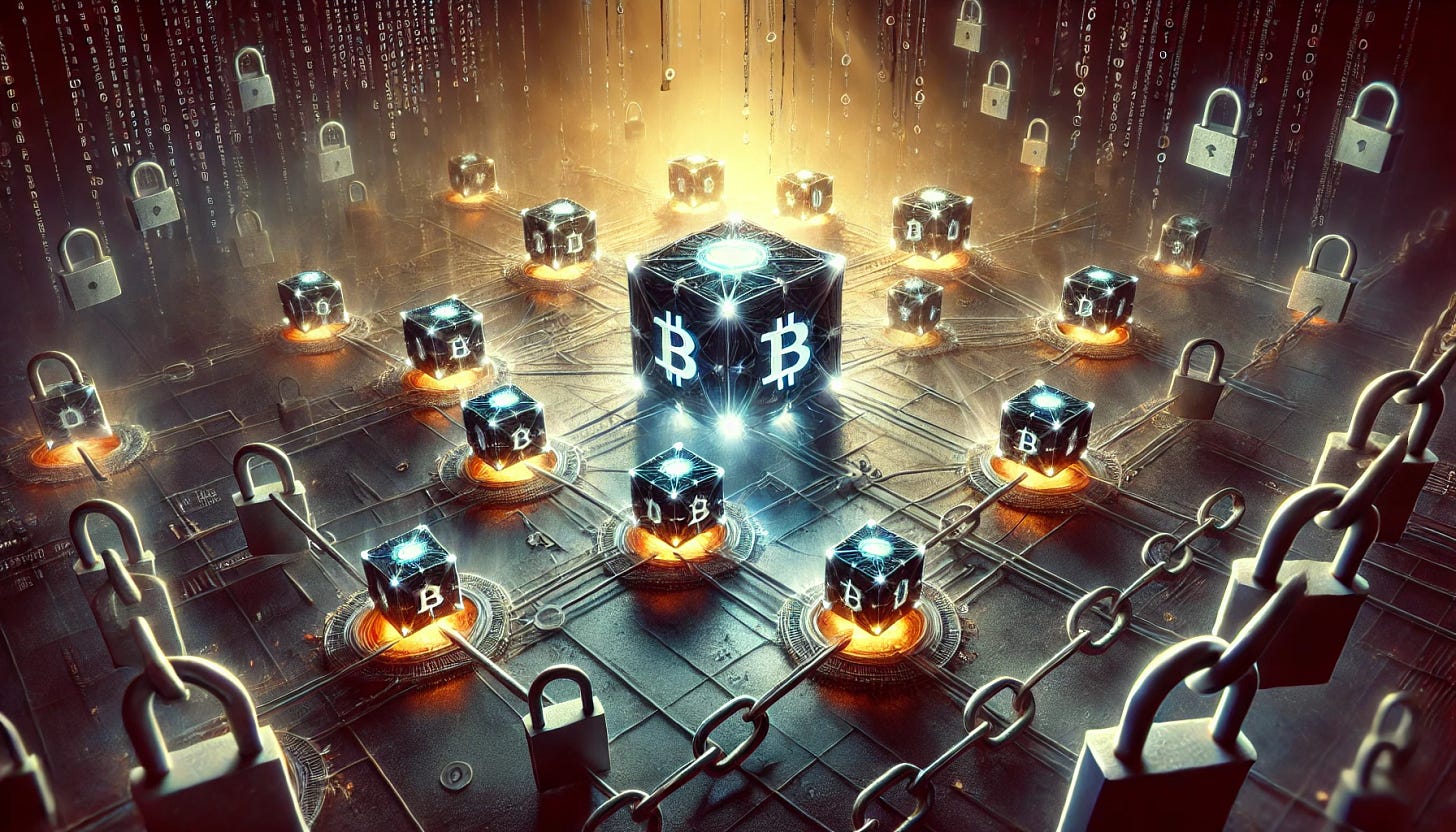Crypto and Web3 Are Not Decentralized (Yet), and No One Cares
Decentralization is the dream, but reality has a different story. Are we just pretending?
Decentralization. The holy grail of crypto. The promise that drew us in. But here's the truth: it's a lie.
Or at least, it is right now.
The Myth of Decentralization
We like to tell ourselves that crypto and Web3 are decentralized. That we've built a system outside the reach of governments, corporations, and traditional power structures. But have we?
Not really. Not yet.
Look at the landscape. Satoshi Nakamoto has done a damn good job at decentralization, with Bitcoin, despite what critics say. But what about the rest?
Ethereum, after moving from PoW to PoS, is starting to show cracks. But the real shitshow? It’s the so-called "Ethereum killers", the alternative L1s, L2s, and chains. Most are controlled by foundations, a handful of validators, or both. They’re centralized to the core.
And then there's GameFi, wallets, bridge, and a lot of other apps. Custodial, centralized, and completely dependent on a few key players.
Most users don’t even realize—or care.
Fully on-chain dApps? They’re rare, and there’s a reason for that. True decentralization often comes with UX headaches and inefficiencies. So unless you’ve got a really compelling use case, most projects stick to what’s easier: centralized solutions with a bit of decentralized branding.
This isn't decentralization. It's just a new layer of the same old system.
Why No One Cares
No one gives a shit. And I mean that literally.
People talk big about decentralization, but when it comes down to it? They don't care. What they care about is making money. Fast. That's it.
Look at the hype around DeFi, NFTs, shitcoins/memecoins, and all the other shiny new toys. What do they have in common? A good 99% of those are centralized, controlled, and manipulated. But people don’t care as long as the profits keep rolling in.
Decentralization: A Moving Target
Decentralization is a spectrum, not binary. It’s something to aim for, not something we’ve achieved. And right now, we're still far from the target.
Why? Because true decentralization is hard. It’s messy, slow, and often inefficient. People like the idea of decentralization until they realize it means giving up control, speed, and convenience.
But here's the thing: the dream of decentralization isn’t dead. It's just early. The tools, protocols, and incentives aren't fully there yet. But they could be. If we care enough to build them.
What Needs to Change
If we actually want decentralization—and that’s a big "if"—we need to rethink everything.
First, we need to stop pretending that what we have now is good enough. It’s not. These half-assed decentralized apps are just centralized ones with a blockchain sticker slapped on them.
Second, we need to prioritize decentralization in our designs. That means less reliance on centralized platforms, more focus on peer-to-peer protocols, and a commitment to making decentralization practical and user-friendly.
Third, we need to create incentives that prioritize true decentralization over short-term gains. Right now, the system favors centralization because it’s easier and more immediately profitable. But if we want decentralization to flourish, we need to reward it in a way that makes it not just viable but preferable.
The Real Question
But here’s the real question: Do we actually want this? Do we actually want a world where no one is in control? Where power is truly distributed?
Most people? They don’t want decentralization. They want security, convenience, and profits. And they’re willing to sacrifice decentralization to get it.
So maybe the problem isn’t that crypto and Web3 aren’t decentralized. Maybe the problem is that we—as in society—don’t actually care about decentralization as much as we say we do.
A Call to Action
If you're a builder, an innovator, a dreamer—you need to ask yourself what you really want. Do you want decentralization, with all its messiness and complexity? Or do you just want to cash in on the next big thing?
If you want decentralization, it’s going to take work. Real work. It’s going to take new ideas, new technologies, and new incentives. It’s going to take a commitment to building something that might not be profitable in the short term but could change the world in the long term.
And if you don’t care about decentralization? Well, at least be honest about it.
The Future Isn’t Set
Crypto and Web3 still have a long journey ahead. Decentralization isn’t dead—it’s just delayed. But whether it ever arrives depends on us.
So, what’s it going to be? Do we care enough to build a truly decentralized future? Or are we just going to keep pretending?
The choice is ours.


